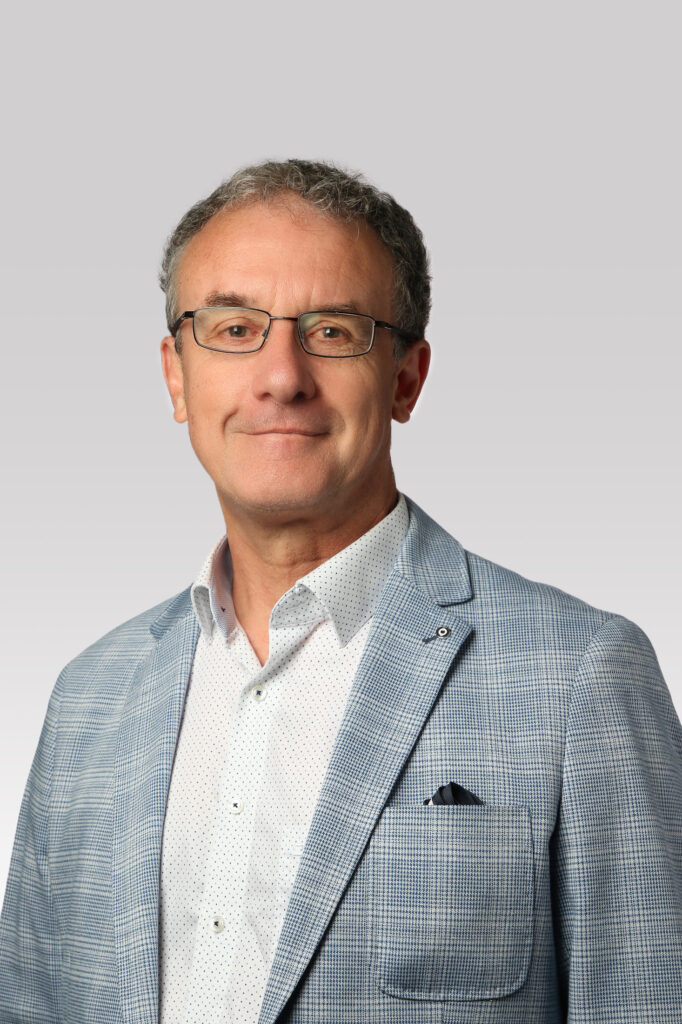
Founder and CEO, Allarta Life Science
Professor, McMaster University
It was the influence and encouragement of a high school science teacher and the chemistry set handed down by his older brother that first triggered Dr. Harald Stöver’s interest in science. “I had a tiny lab in our house where I carried out chemical reactions and experimented with fireworks – including an unsuccessful attempt to blow up a tree stump. My parents were very supportive of my hobby, except perhaps for that tree stump. My mother even helped me conduct science experiments in the family kitchen,” recalls Harald.
Harald Stöver had completed three years of undergraduate chemistry study at the Technische Universitat Darmstadt in his native Germany when he decided to move to Canada for a year. His plan was to complete his degree at the University of Ottawa and return to Germany. However, his academic advisors in Ottawa noted that Harald’s undergraduate work from Darmstadt qualified him to enter graduate school. He became the first graduate student of the late Christian Detellier and completed his Ph.D. at the University of Ottawa. “Canada was now my home. They captured me!” says Harald.
During his time at the University of Ottawa, Harald established a connection with Professor Jean Fréchet, a professor in polymer chemistry. When Professor Fréchet moved to Cornell University as IBM Professor of Polymer Chemistry, he invited Harald to join him as a postdoctoral fellow to start research on a new technique. “We did great work together. I felt comfortable setting up new labs. After all, I had practiced in my mother’s kitchen,” says Harald.
Harald is currently a professor of chemistry and chemical biology in the Faculty of Science at McMaster University. During his tenure of more than three decades at McMaster, he has established a reputation as a leading researcher in polymer hydrogels, bio-relevant macromolecules and the delivery of biologics. His research and work with industry has been recognized by being named an NSERC/3M Industrial Research Chair, receiving Canada’s National Macromolecular Science and Engineering Award, and his appointment as Director of the NSERC Collaborative Research and Training Experience (CREATE) Program in Biomaterials.
When McMaster University decided to expand its focus on teaching and research to include entrepreneurship, Harald’s experience and affinity for working with industry made him a clear choice for the university to invest in transferring his research to market. Allarta Life Science, a pre-clinical life science company that develops next-generation biomaterials for immune-privileged delivery of cells, stem cells and biologics, was launched in 2019 by Harald Stöver and Maria Antonakos, a senior executive with a broad range of experience managing innovation, and with an equity investment by McMaster.
Allarta Life Science’s work is poised to fundamentally change the way that patients with Type 1 Diabetes (T1D), a chronic disease that comes with a host of potential complications, including increased risk of stroke and heart attack, receive treatment.
Patients with advanced T1D are eligible for islet cell transplants from the pancreas of a deceased donor. However, this alternative to multiple daily injections of insulin to manage blood sugar comes with costs to patients’ health. Because the body identifies the transplanted cells as invaders, patients must take immune suppression drugs for the rest of their lives. The solution being developed by Allarta Life Science is an immune-protective polymer gel, not recognized by the body as foreign material, to encapsulate the islet cells while still allowing the cells to receive nutrients and release insulin by diffusion. Harald likens the gel to a diver’s shark cage that protects a human from attack while allowing water to pass through. Ultimately, this therapy will reduce or eliminate the need for current immune suppression drugs that leave patients at risk for infections.
As a vertically integrated company, Allarta Life Sciences also works with partners who develop stem cell-based therapeutic cells that would eliminate the need for donor transplants. Fewer than a dozen other companies work in this area. Some develop new cells not recognized by the immune system, others focus on the immune-protective barrier. Allarta is unique in that their work covers all bases by producing hydrogels that contain islet cells, allow diffusion of insulin and deflect the immune system. “We expect to work with human subjects in clinical trials within two years,” notes Harald.
In October 2023, Allarta announced news of an award from JDRF, the leading global T1D research and advocacy organization, to fund the company’s ongoing work. “The JDRF award will help us advance these therapies further towards the clinic,” Harald says.
Harald is excited to be part of McMaster University’s evolution of academic focus to include building the entrepreneurial sector. “This brings fundamental science developed in university labs to clinical settings. It’s good for undergraduate and graduate students and for faculty and gives back to the community,” he explained.
Harald Stöver has come a long way from the experiments he conducted in his home science lab and his mother’s kitchen. His ground-breaking research at McMaster University and the work of Allarta Life Sciences are poised to make a profound impact by improving the lives of Type 1 Diabetes patients worldwide.
You can learn more about Harald in the visualizations below.
Do you have an Impact Story to share? Reach out to us at connections@profoundimpact.com for a chance to have your story featured in an upcoming newsletter!